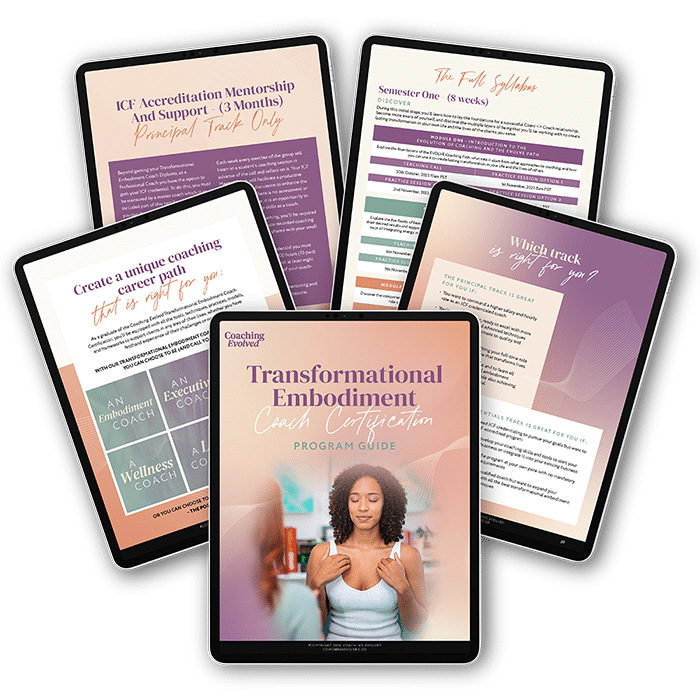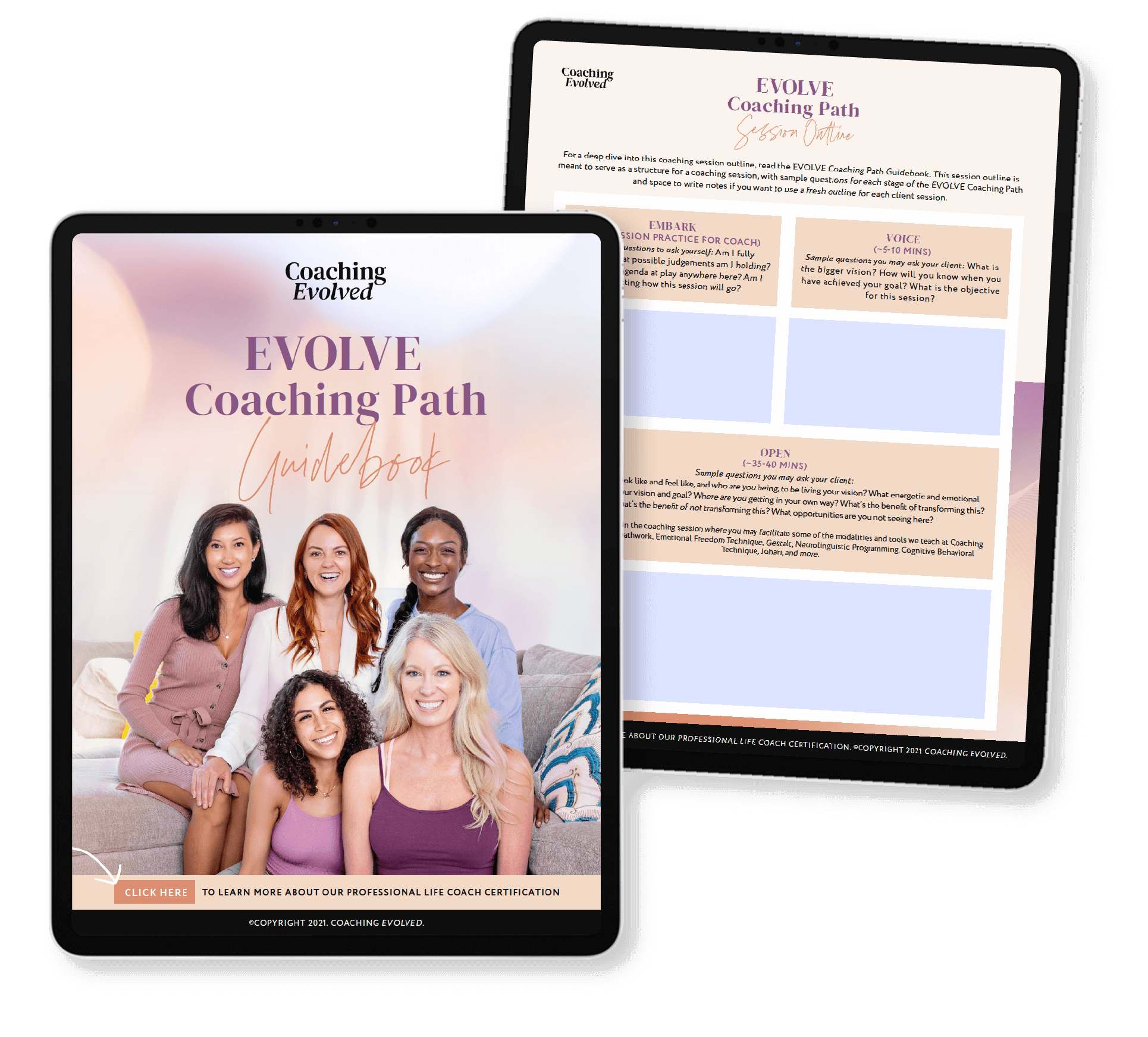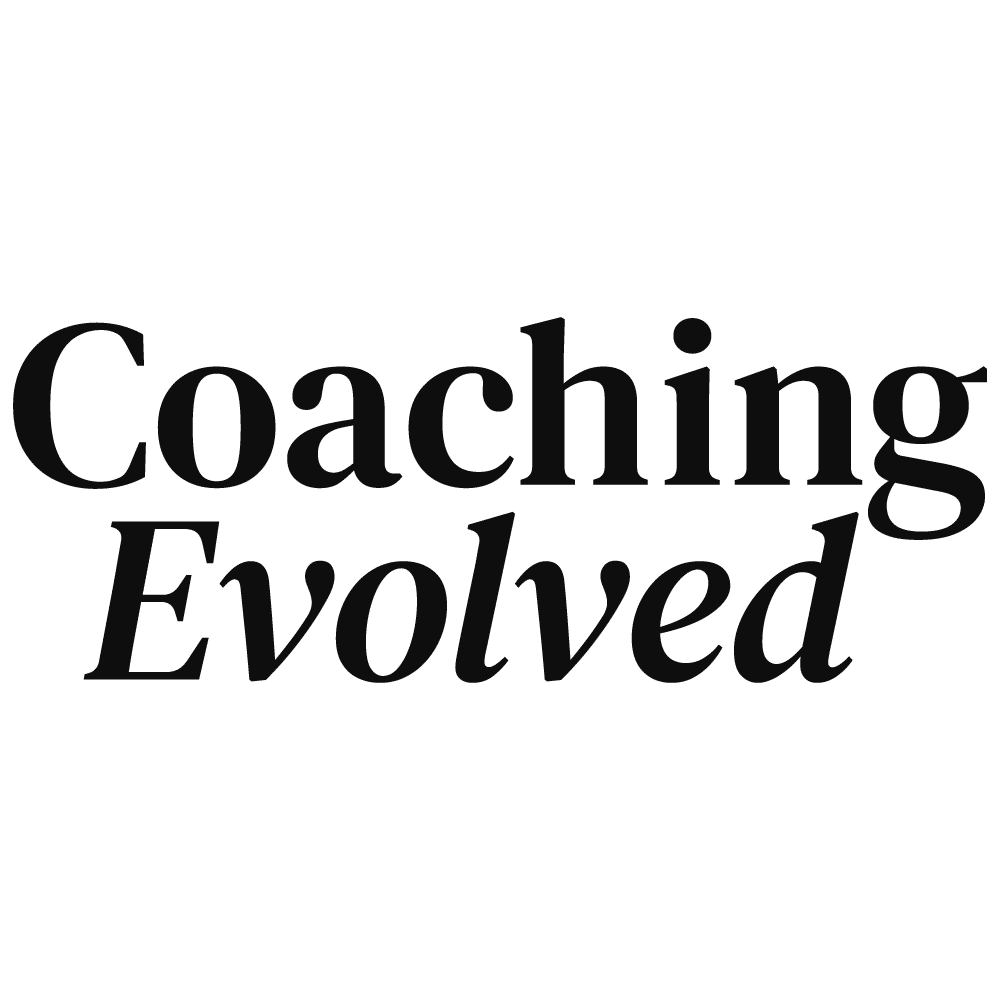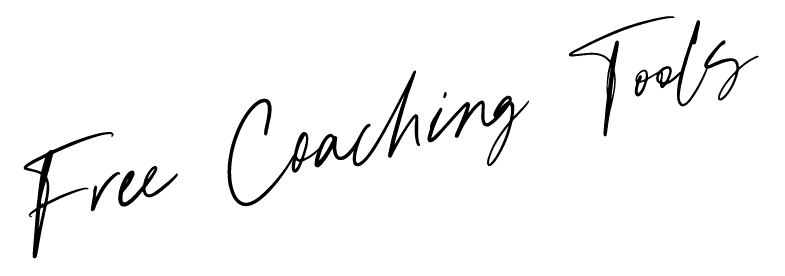One of the most crucial skills we can master as coaches is learning how to ask really powerful questions so we can support our clients to expand their awareness and find solutions for their own problems and challenges so they can create the outcomes they desire in their process of self-discovery.
With a well placed question, we can:
Challenge disempowering beliefs and behaviours
Get unstuck from situations we don’t fully understand
Explore the world around us and find out necessary information
And the most powerful kinds of questions support us in coaching the client, not the issue. That’s where the magic happens with coaching, and it’s such an important skill to master.
This Core Communication Skill is something we go more deeply into inside our ICF-accredited Coaching Certification program.
Let’s explore 4 types of coaching questions that can support your clients in their process of transformation:
1. Open Questions
Closed questions can be answered with single words or a short phrase, like “yes” or “no,” which don’t encourage exploration for our clients. Open questions require that exploration and thought, and lead to more descriptive answers that are useful for creating awareness within a client. They support clients to:
Reflect
Evoke feeling and opinions
Take responsibility for our thoughts and actions
Bring about more effective learning
Open question examples could be, “When do you think the discomfort of staying where you are going to be enough to make a change?” or “How would your life be better if X wasn’t a problem right now?”.
2. Big Picture Questions
Big picture questions reveal the larger scope and motivations around our client’s goals. These questions help us to:
Uncover a client’s goals, values and aspirations
Gain perspective around where something fits into a larger whole
Big picture question examples could be, “How will this affect you in 10 years?” or “What will the bigger impact of this goal be beyond how it will impact you?”
3. Specific Questions
Specific questions hone in on the details that need to be carried out to bring their goals to life. Specific questions allow us to:
Create action plans
Develop habits and patterns of commitment
Specific questions could be, “How did you get on with completing your work last week? or “What would need to happen for that to be possible?”
4. Probing Questions
Probing questions produce more detail and offer clarity when a client is being a little vague or not giving enough information. Probing questions assist us to:
Seek clarification
Seek a reason or purpose
Ask for examples
Extend answers
Examples of probing questions could be, “What exactly did you mean by…?” or “What, specifically, will you do next week?”.
By developing our skills as a coach, honing our intuition and learning the anatomy of powerful questions we are able to support our clients in expanding their awareness, witnessing their blindspots and feeling better equipped to achieve their goals.
If you’re interested in learning more about our certification program and the new paradigm of coaching that we’re living, breathing and co-creating with our students and graduates…
And the dynamic suite of modalities, techniques, tools and frameworks – like Breathwork, Emotional Freedom Technique, Meditation and Visualization, Gestalt, Neuro Linguistic Programming, Cognitive Behavioral Technique, Loving Kindness Practice and Body Scanning – we train our professional coaches in…
Then we invite you to learn more about our 6-month, multi-modality and ICF-Accredited Transformational Embodiment Coach Certification.
It would be our honor to journey alongside you if your heart, soul and intuition felt a resonance and inner ‘YES!’

Download your free Program Guide below
Ready to become a powerful communicator in your personal and professional life?
Coaching Evolved is now enrolling its 4th cohort of heart-led healers, leaders, coaches and teachers ready to step into the coaching career of their dreams.
Join our one-of-a-kind ICF-accredited, multi-modality Transformational Embodiment Coach Certification program.



